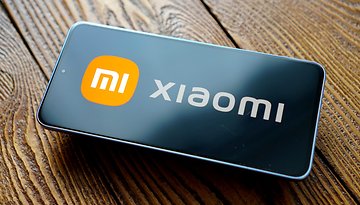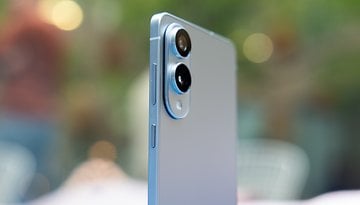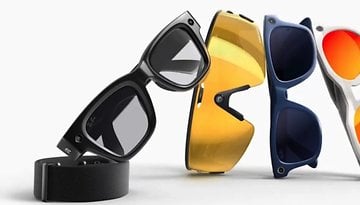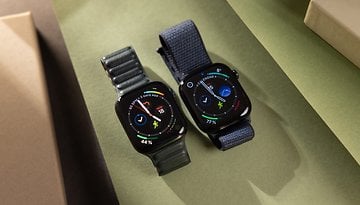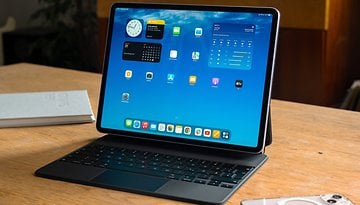iPad Pro & Apple M4: Harbingers of a Major AI Arms Race
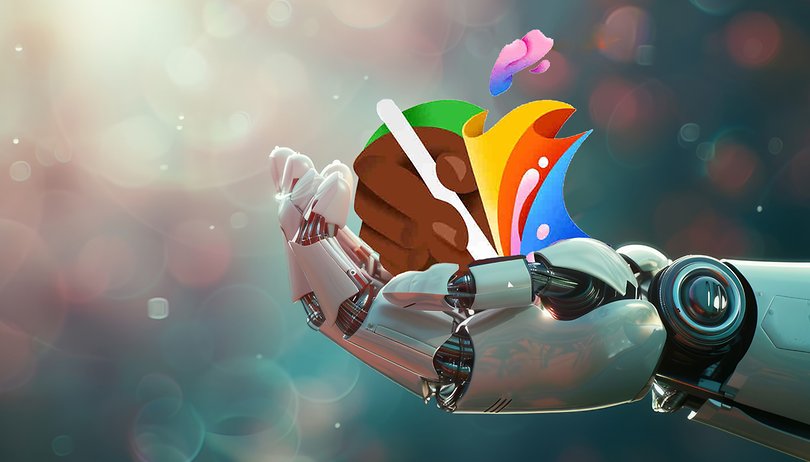

Wait a minute, the Apple M4? Yes, that's right! This week, at its unveiling of the new iPad models, Apple casually introduced a new generation of its chipset, upsetting some loyal Apple fans along the way. After all, the new MacBooks, among others, now run on an older chip. Nevertheless, it was the right decision—especially considering WWDC which is eagerly awaited.
How often have I felt like this? Should I buy a new MacBook now, or am I better off waiting for three or four months until Apple (probably) unveils a new generation of computers? Wouldn't I be annoyed if the new devices didn't just look better, but actually offered significantly better performance? The answer is simple: Yes, I would be annoyed.
How do I resolve this dilemma? Most of the time, my impatience won out and I bought a new computer. After the initial bliss, I was secretly annoyed a few months later and reassured myself by taking pride in being an early adopter.
Why did Apple launch the new M4 chip just six months later?
Anyone who bought the new MacBook with an M3 chip over the last few days, weeks, or months already know that their new Apple computer could theoretically have a newer chipset. Apple achieved something truly unusual and more or less completely unexpectedly with the announcement of the M4 chip. Apple only unveiled the M3 in October 2023 alongside several new MacBooks and iMacs. It is therefore surprising the new iPad Pros, among all the devices in the Apple stable, are now the first to be equipped with this new SoC.
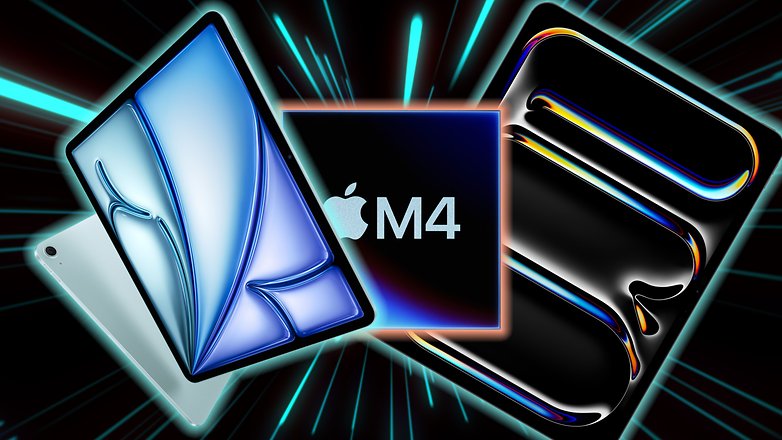
The new M4 chip is actually significantly more powerful than its predecessor. It was also manufactured using an improved 3 nm process. In addition to productivity gains, the new manufacturing method promises significantly faster and, above all, more energy-efficient cores.
The rumor mill is buzzing: Apple wants to show off lots of AI at WWDC
In my opinion, however, a few other things are far more important and could well have something to do with the introduction of the M4: Apple has lost an awful lot of ground recently where "artificial intelligence" is concerned compared to the competition. Regardless of whether it's Meta, Amazon, Google, or above all, Microsoft with ChatGPT, Apple is far less formidable than the competition when it comes to AI.
Anyone who regularly speaks to Siri knows that the conversation is awkward and artificial, and by no means intelligence. This recently made the company's shareholders and its top management very nervous. The share price fell from just under $200 to $160 thereabouts just last month. Compared to Microsoft, Apple is now worth around $300 billion less. Apparently, the stock market has a lot of faith in Microsoft's strategy.
Apple is in a difficult situation and has said goodbye to future projects like the Apple Car after more than 10 years. The resources freed up are to be invested in artificial intelligence projects.
Back to the M4 and Apple's WWDC event. The rumor mill has been predicting for months that Apple is likely to fundamentally change its operating systems, such as iOS, macOS, iPadOS, and others this year in a manner that has never happened before. The main focus will be on artificial intelligence.
The M4 chip is designed for computing-intensive tasks
Apple has increased the memory bandwidth of the M4 by 20 percent. While the M3 chip still had to be content with 100 GB/s, the M4 can exchange data at 120 GB/s. This is not only important for graphics-intensive work and games, but also for calculations in applications with artificial intelligence.
The so-called NPU (Neural Processing Unit), which is responsible for AI calculations on the chip, has also been revised and should be able to perform up to 38 trillion calculations per second. To place this hard-to-imagine figure in a proper context: If you were to stack 38 trillion coins on top of each other, the result would be a tower that goes all the way to 88.54 million kilometers. That's about half the distance from here to our sun.
There was something else Apple announced yesterday concerning the iPad Pro and the M4: Thermal management has improved significantly due to design changes in the iPad and the more energy-efficient chip. This means the battery will not only last longer, but the computers are also much more efficient.
So is the iPad Apple's first salvo for the big AI round-up that is bound to happen in a few weeks' time? I would say so. The Cupertino-based company is optimally preparing its tablets for the new operating systems and possibilities that we will soon be privy to. Of course, there is also the theory that Apple is rushing to bring forward the fourth generation of its chipset to make the competition look a little worse for the wear.
With its Snapdragon X Elite chipset (which was designed by former Apple employees, by the way), chip giant Qualcomm actually outstripped Apple and the Apple M3 in terms of performance. The Snapdragon X Elite achieved an incredible 45 trillion TOPS, making it the absolute leader on paper.

Were the benchmark results of the Snapdragon X Elite to blame?
Of course, it must have hurt Apple that among all people, its ex-employees managed to pull off a coup by developing an ARM chip for Microsoft Windows that is on par with its efforts. However, does a company like Apple really get carried away with throwing all customer orientation overboard just because of a few disdainful figures, only to theoretically come out ahead?
Probably not. We're talking about the company that waited for years before launching a commercially available VR headset. Apple knows its customers buy its products because of the overall experience and not because it might have the fastest chip under the hood on paper.
The people in Cupertino are most likely much more concerned about the fact that Siri looks like a mediocre primary school pupil compared to Alexa, who is currently having to compete with a high school student in an IQ competition. How about the fact that Microsoft holds a robust stake in the AI leader OpenAI? More importantly, OpenAI is working on an AI smartphone with Apple's former chief designer Jony Ive.
These are the real dangers that can shift consumers' attention away from the brand. Apple's trump card is its ability to build products that help people become much more productive. This is where artificial intelligence will change everything, and this is where Apple has to deliver if it would rather not run into serious trouble.
Apple has known since the introduction of ChatGPT that the clock is ticking against them if they don't come up with a product that is at least on par in terms of artificial intelligence with the competition. The M4 chip is perfect for portable devices that can get by without being plugged in for a long time, simply because of its incredible performance in the NPU and its lack of hunger for energy.
If Apple had released the iPads without the M4 chip, many new functions might not have been possible at all, or only at the expense of significantly poorer battery life.
I'm excited for WWDC! We'll see how Apple sets its course then.





